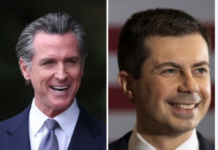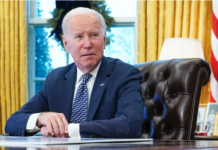Victor Willis, a founding member of the Village People and the voice behind the iconic 1978 disco hit “Y.M.C.A.,” has something to say to all the pearl-clutchers complaining about Donald Trump’s use of the song during his campaign rallies: relax, it’s not that deep. Willis has come forward to defend both the song and its use, making it abundantly clear that the track is not the “gay anthem” many assume it to be.
In a detailed Facebook post, Willis explained the origins of the song, which he co-wrote, and demolished the idea that it’s some sort of coded message about sexuality. The songwriter said his lyrics were inspired by his perception of the Young Men’s Christian Association (Y.M.C.A.) as a wholesome place for guys to hang out. “When I say, ‘hang out with all the boys,’ that is simply 1970s black slang for black guys hanging out together for sports, gambling, or whatever,” Willis clarified. He added, with a not-so-subtle jab, that “there’s nothing gay about that” and urged people to get their “minds out of the gutter.”
Village People singer Victor Willis on Facebook:
“WHY I ALLOWED PRESIDENT ELECT TRUMP’S CONTINUED USE OF Y.M.C.A. AND WHY THE SONG IS NOT REALLY A GAY ANTHEM
To Village People fans and the media:
I am the singer and writer of the lyrics to the hit Y.M.C.A. In fact, as was… pic.twitter.com/rbonjHrEQe
— Wojciech Pawelczyk (@WojPawelczyk) December 3, 2024
You can almost hear the collective groans from the Left, who love nothing more than pigeonholing the song as part of their cultural playbook. Willis isn’t having it. In fact, he’s so serious about preserving the song’s original intent that he’s vowed to sue any media outlets that continue to mislabel it as a “gay anthem” starting next year. Message received.
Now, let’s talk about the complaints—over 1,000 of them, according to Willis—that have poured in over Trump’s use of the song at his rallies. Critics seem to think that “Y.M.C.A.” blaring over Trump’s campaign events is some kind of sacrilege. But Willis, who has every right to speak on the matter, sees it differently. Sure, he admits the flood of complaints was a “nuisance” at first, but then he realized something: Trump’s rallies had given the song a second wind, propelling it to unprecedented success more than four decades after its original release.
Victor Willis, the singer behind YMCA, has released a message thanking President Trump for dancing to his song. He said the song has “benefited greatly” from Trump’s use.
Willis also reiterated that the song is not a gay anthem and may sue news outlets calling it gay.
“Sadly,… pic.twitter.com/Yx5QFmJIyw
— George (@BehizyTweets) December 3, 2024
Here’s a fun fact for the haters: despite being a disco staple, “Y.M.C.A.” never hit #1 on the Billboard charts when it was first released, peaking instead at #2. Thanks to Trump’s use of the song, however, it finally snagged the top spot on a Billboard chart, holding it for two weeks. Willis acknowledged the irony with a touch of humor, noting that the financial boost has been “great.” In other words, while critics were busy whining about Trump playing the song, Willis was busy cashing checks.
The real kicker? Willis, a lifelong Democrat, didn’t let his political affiliation cloud his perspective. He might not agree with Trump on policy, but he recognizes that the former president’s use of the song brought renewed attention and success to his work. That’s called seeing the bigger picture—something that might benefit those who spend their time dissecting every Trump rally playlist for hidden messages.
Lead singer of Village People Victor Willis called out the media for perpetuating the idea that ‘YMCA’ is a gay anthem. @victorwillis hopped on ‘TMZ Live’ to explain why the gay anthem label is ‘hurting’ the song. pic.twitter.com/3Y4758dSx2
— TMZ Live (@TMZLive) December 3, 2024
The uproar over “Y.M.C.A.” at Trump’s rallies says more about the critics than it does about the song—or Trump. Maybe it’s time for everyone to take a page from Victor Willis’s book and lighten up. After all, it’s just a disco hit, not a manifesto.







